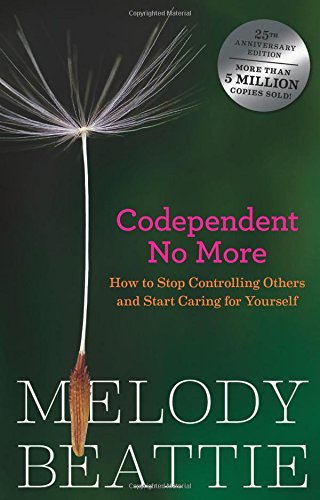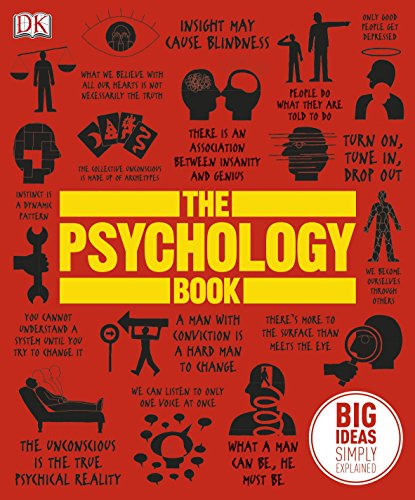Top products from r/psychologystudents
We found 18 product mentions on r/psychologystudents. We ranked the 16 resulting products by number of redditors who mentioned them. Here are the top 20.
1. Theories of Counseling and Psychotherapy: Systems, Strategies, and Skills (4th Edition) (Merrill Counseling (Hardcover))
Sentiment score: 1
Number of reviews: 1
 Show Reddit reviews
Show Reddit reviews2. SPSS from A to Z: A Brief Step-by-Step Manual
Sentiment score: 0
Number of reviews: 1
 Show Reddit reviews
Show Reddit reviews3. Nation, Psychology, and International Politics, 1870-1919 (Palgrave Macmillan Transnational History Series)
Sentiment score: 0
Number of reviews: 1
 Show Reddit reviews
Show Reddit reviews4. Incognito: The Secret Lives of the Brain
Sentiment score: 2
Number of reviews: 1
Vintage Books
 Show Reddit reviews
Show Reddit reviews5. Cracking the GRE Psychology Subject Test, 8th Edition (Graduate School Test Preparation)
Sentiment score: 1
Number of reviews: 1
 Show Reddit reviews
Show Reddit reviews6. Research Methods in Psychology: Evaluating a World of Information (Third Edition)
Sentiment score: 1
Number of reviews: 1
 Show Reddit reviews
Show Reddit reviews8. Codependent No More: How to Stop Controlling Others and Start Caring for Yourself
Sentiment score: 0
Number of reviews: 1
Great product!
 Show Reddit reviews
Show Reddit reviews9. Human Growth and Development Across the Lifespan: Applications for Counselors
Sentiment score: 0
Number of reviews: 1
 Show Reddit reviews
Show Reddit reviews11. Cognitive Psychology: Connecting Mind, Research and Everyday Experience
Sentiment score: 1
Number of reviews: 1
Cengage Learning
 Show Reddit reviews
Show Reddit reviews12. Human Exceptionality: School, Community, and Family
Sentiment score: 1
Number of reviews: 1
 Show Reddit reviews
Show Reddit reviews14. Discovering Statistics Using IBM SPSS Statistics, 4th Edition
Sentiment score: 1
Number of reviews: 1
Hard Cover
 Show Reddit reviews
Show Reddit reviews




I don't know where you are in the world, but that is not typically how things work in the United States.
In the US, commonly licensable Master's degrees are Counseling, MFT, and Social Work. For all of these, you are trained as a generalist. That means you will work with a variety of populations and you will probably take some sort of "theories of counseling" class. Some programs will emphasize certain theories more than others-- e.g. some programs are VERY CBT heavy or VERY interpersonal psychotherapy heavy. Some may operate from slightly different perspectives (e.g. family systems theory for MFT). But any good program will teach you more than one thing and will have opportunities for you to explore theories that seem like a particularly good fit for you (hopefully-- sometimes it's hard if there is no one trained in a method as a professor or supervisor).
Some people do specialize. E.g. I know a clinician who only does EMDR. That's what she does and she doesn't take clients where either she or the client do not believe that this a fit. Most people, though, consider themselves either "eclectic" or "integrative", which means that they are utilizing multiple theories in their interventions. It is pretty uncommon for folks to operate from only one theoretical orientation.
With all of that said, my theories textbook was Theories of Counseling and Psychotherapy by Seligman and Reichenberg. -- https://www.amazon.com/Theories-Counseling-Psychotherapy-Strategies-Hardcover/dp/0132851709/ref=sr_1_3?keywords=theories+of+counseling&qid=1572576919&sr=8-3
I'm talking about now, not "from a historical perspective." Aristotle believed that women were inferior to men ("a deformity," he called them) partly because he claimed that they have fewer teeth than men. Those claims are obviously absurd, but are we expected to give them more respect today simply because they made sense "in relation to the time he was living in" or because someone might find them interesting "from a historical perspective?" Of course not.
Were I teaching a "History of Psychology" course, I'd probably cover Freud, because of his historical significance, in much the same way that the Titanic was historically significant for maritime travel. But, if I'm teaching an intro course or any other science-focused course, I'm mostly avoiding his dreck because his ideas "from a modern perspective" are absurd and tantamount to pseudoscience. I teach science, not pseudoscience.
I'm not aware of any modern interpretations/explanations of his theories that aren't entirely bunk. Maybe they're out there but, if one has to reinterpret his theories in order for them to not be bunk, or the best defense of them is that they "aren't entirely bunk," then that should tell you something about the validity of his ideas in the first place.
Fred Crews wrote a blistering expose on Freud, that I highly recommend to anyone who thinks Freud's critics have been uncharitable: https://www.amazon.com/Freud-Making-Illusion-Frederick-Crews/dp/1250183626/r
Great article here: https://sciencebasedmedicine.org/freud-was-a-fraud-a-triumph-of-pseudoscience/
Another one here on why his ideas survive (like cockroaches, I suppose) despite that fact that (much like Aristotle) he was wrong on pretty much everything: https://www.newyorker.com/magazine/2017/08/28/why-freud-survives
I've always had a knack for the stuff. When I TAed graduate classes I found this book to be helpful in explaining some advanced statistical concepts in plain language. If you are specifically learning to use the SPSS program, this book is by far the best. Good luck!
This is the one that used when I took junior cognitive psychology. I loved it so much that I kept it and didn’t resell it. It’s a very straightforward textbook, easy read, and has good diagrams!
The Psychology Book by DK books is fantastic as an introduction, really easy to read and goes into a bit about everything from the history of philosophy right up to modern day focuses of psychology. I read it before I started my undergrad and it really helped me to understand the basics :)
https://www.amazon.co.uk/dp/1405391243/ref=cm_sw_r_cp_api_idrLBbMQBWV8Z
For research methods I think [Evaluating A World Of Information] (https://smile.amazon.com/dp/0393617548/ref=cm_sw_r_cp_apa_i_eyXnDb5GRDMNM) is a really helpful starter. It is a visually appealing book and provides a fantastic framework for understanding how psychological research is performed.
It is not a particularly technical statistics book but has appendices which do a good job of showing you the necessary statistical concepts.
If you want general psychology knowledge that you'll be expected (or even just that you might want) to know by the end of your undergraduate degree buy a GRE subjects test "psychology" book. Read, learn, google subjects that you're curious about and didn't get enough information on, take the practice tests. 1 year and a half is a lot of time to prepare. If you use the time wisely some of the classes will be a breeze. Example book: https://www.amazon.com/Cracking-Psychology-Subject-Graduate-Preparation/dp/0375429735
In regards to a practice data set, there's the [General Social Survey] (http://www.gss.norc.org/get-the-data/spss). It's a huge list of cumulative data from U.S. adults ranging back from the 70s. If that link is behind a paywall, your university might have access to it.
Also, SPSS from A to Z: A Brief Step-by-Step Manual
Get this book:
https://www.amazon.com/Cognitive-Behavior-Therapy-Second-Basics/dp/1609185048/ref=sr_1_1?ie=UTF8&qid=1540775861&sr=8-1&keywords=judith+beck
Judy Beck owns.
Based on your information the book may be: https://www.amazon.com/Psychology-International-1870-1919-Macmillan-Transnational/dp/0230007171 but I don't know the book.
This is the book we used in my clinical counseling Master’s program. It breaks each life stage into physical, cognitive, and emotional/social aspects. Seriously, it’s thorough. https://www.amazon.com/Human-Growth-Development-Across-Lifespan/dp/1118984722/ref=nodl_
Codependent No More by Melody Beattie
Codependent No More: How to Stop Controlling Others and Start Caring for Yourself https://www.amazon.com/dp/0894864025/ref=cm_sw_r_cp_api_i_1NNUCbHRNAKFT